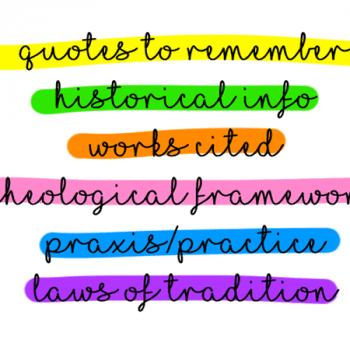What (or who) we read can be a divisive topic within Pagan communities. Just because an author is well-known doesn’t mean they will be universally liked; if anything, the better known an author is, more controversy and heated debates are found.
This post is inspired by the videos I’ve been watching over on Youtube, such as Thorn Mooney’s many videos about books and reading.
What as a Bad Book?
Looking over my library of books, there are very few I would outright call ‘bad’. Flawed? Definitely. Poor history, outdated information, or just limited utility…there are plenty. There is one book I have that I think it almost irredeemably bad, and it’s one you can’t easily get your hands on anymore.
Like Mooney, I like all books. For good or ill, I can ramble about books, especially Pagan ones, for hours. Just as the people in my local group! Give me a chance and I will haul twenty books over and spout off the pros and cons of each.
What makes a book bad is heavily, heavily dependent on what the book is trying to do and how well that aligns with what we are trying to accomplish by reading it. Saying that a book is just bad, across the board? I’m not too keen on that. Saying a book might be bad for beginners or bad with history or terrible at defining its terms? That is a call I’m much more comfortable making.
A book can be bad at accomplishing its stated purpose (which many Pagan and witchcraft books have). But it might excel in its poetic sensibilities. Maybe it has unique exercises. A book might hit every point and idea as it intended but be an unbearable slog for me to read.
So figuring out what a ‘bad book’ is comes down to how we are defining ‘bad book’.
Reading Poorly
For the most part I don’t think there is a ‘wrong’ way to read. We each read for different reasons. Even in cases where we are reading for similar purposes, we can come away with wildly different experiences and interpretations of a book. Come back to a beloved book a few years later and you might find your opinion changed.
There is one approach that I will call wrong, though: reading in bad faith.
Most people think of nitpicking when it comes to bad faith reading. I would say it goes beyond nitpicking. But, nitpicking can kill your enjoyment of a text and interfere with your ability to grasp the larger themes. I say this as someone who tends to nitpick. Especially if you are reading to review or to recommend, nitpicking usually just distracts from the deeper flaws (and strengths).
No, I consider bad faith reading to be where we have already decided we will dislike a book and seek out reasons to back up our feeling. Maybe we don’t like the author or we think the topic is silly or whatever. We can easily end up ripping quotes we dislike out of context and presenting them as bloody jewels to excuse our vitriol.
Nitpicky reading tends to result in these sort of bad faith arguments and examples, serving up a lot of ‘gotcha!’ moments that may be fun when we want to roast a book but don’t provide much useful critique. Some groups, at least online, seem built around these bad faith reviews of books. This behavior is common in spaces hyper-focused on cancelling or calling out authors or writers for every perceived and real slight.
It isn’t always easy to discern between bad faith criticism and more grounded critique. Telling someone they are arguing in bad faith usually doesn’t get anywhere either. Having been in communities where bad faith arguments and call outs where the norm, though, I try to keep those impulses in mind and curb them as best I can. Am I focusing on the author and my biases against them, or am I keeping my focus where I want it: the text itself?
When the Facts are Wrong
A common complaint regarding bad books is when a text has factually inaccurate information. This is a problem in Pagan and witchcraft books, and it’s one we will never see the end of. Some of my favorite books have information that is just wrong, no other way about it.
There are a few things we should consider when it comes to factual or historical inaccuracies:
- What was the context and knowledge when this book was published? I am much harsher on newly published books that have outdated history than, say, those published in in the 80’s and earlier. Keeping in mind what knowledge could be reasonably expected of an author writing at the time is important. This context also helps us figure out what bad history has continued simmering in our communities. One reason I judge newer books harsher on bad history/research is because it is a lot easier to research than it ever has been.
- How relevant is the inaccurate information? This can be tough to discern. In a beginner book bad factual information can be really damaging; you have to unlearn that stuff eventually. But a book might have good poetry, prayer, or rituals while also having terrible history. Bad research is obviously the most damaging when a book is primarily about that research. But it will have an impact no matter what.Figuring out the balance and where to draw the line is messy.
- How wrong is the information? Maybe the terminology is a bit off or there are a few sentences here and there that have claims that aren’t quite true… That’s quite a bit different than claiming an unbroken Pagan/witchcraft practice stemming from prehistory that totally exists, for real. No book is going to be perfect and we have to avoid holding books to impossible standards. Small inaccuracies are usually a lot easier to work around. Inaccuracies that underpin the entire premise of the book are not so easy to brush over.
- What is the impact of the misinformation? We can’t really know in advance what misinformation is going to catch on within our communities until it starts spreading. (We can see what is popping up and guess, but I don’t think any of us can really know with certainty.) So this question is more about seeing what misinformation hooked our communities in the past and how it is repeated or rebranded currently. Another part to this is how easy it is to find sources debunking or correcting the wrong info; if it is really difficult to find corrections that poses a problem.
When the Author is the Issue
Sometimes when we say a book is bad what we are actually talking about is the author. “Don’t read this, it was written by [insert name].” Sometimes a reason will be given for why a certain author is to be avoided, but not always.
Often these warnings to avoid certain authors fall into two categories: the author is accused of having bad factual information that permeates all of their word or the author has done something Bad. Let’s focus on the latter.
A big underpinning to ‘don’t read their books because they did [certain thing]’ is boycotting. Voting with the ‘almighty dollar’. Say, for example, it comes out that an author regularly harasses women online because they dare to exist in the same space he does. People will probably recommend not putting money in that person’s pocket. Whether that will actually impact the author is questionable. (It probably won’t, though.)
In these instances we can see that the avoidance of the author isn’t based on their actual book or writing but their behavior or personality. Similarly, people might warn against an author because they are racist or sexist or otherwise bigoted. Their books might not contain the bigotry or problematic behavior they’re being called out for.
And that is the sticky, difficult point we find ourselves arriving at. Separating the author from the art – is it possible? Should we do so? How can we do it, if it is possible? Should we recommend otherwise ‘good’ books written by bad people?
This issue is unsolvable, in my opinion. The line in the sand is going to be in different places for different people on different issues.
For myself: I do try to separate the artist from the art, at least a little. (I’m a Harry Potter fan. I have to.) But I don’t ignore the author. I wouldn’t take any advice from someone who sends people rape or death threats, so I won’t buy or read books by people who I know do those things. I keep my eye out for subtle bigotry and dogwhistles, doubly so when I know an author is bigoted in some way. The art cannot be completely torn from the author that literally wrote it, but good ideas can come from crappy people. I am more willing to buy and read a book by someone who has died than I am someone who is living and actively promoting, say, nationalism or fascism. And if I do find an idea or practice I like in a book by an author I find repugnant, I try to see if I can find it elsewhere, from a source that doesn’t make my skin crawl.
Some people will avoid ‘bad authors’ entirely (in quotes because the term can apply to a lot of different things). Some people think we should basically shove those books into a storage room and let them rot, forgotten. Maybe we should keep the good books and just say they were written by Hatsune Miku. And still other people think that it doesn’t matter what the author did in their live or what they believed, as long as the text is worthwhile or foundational.
As with pretty much everything, though, I think the answer lies somewhere in the middle.
















